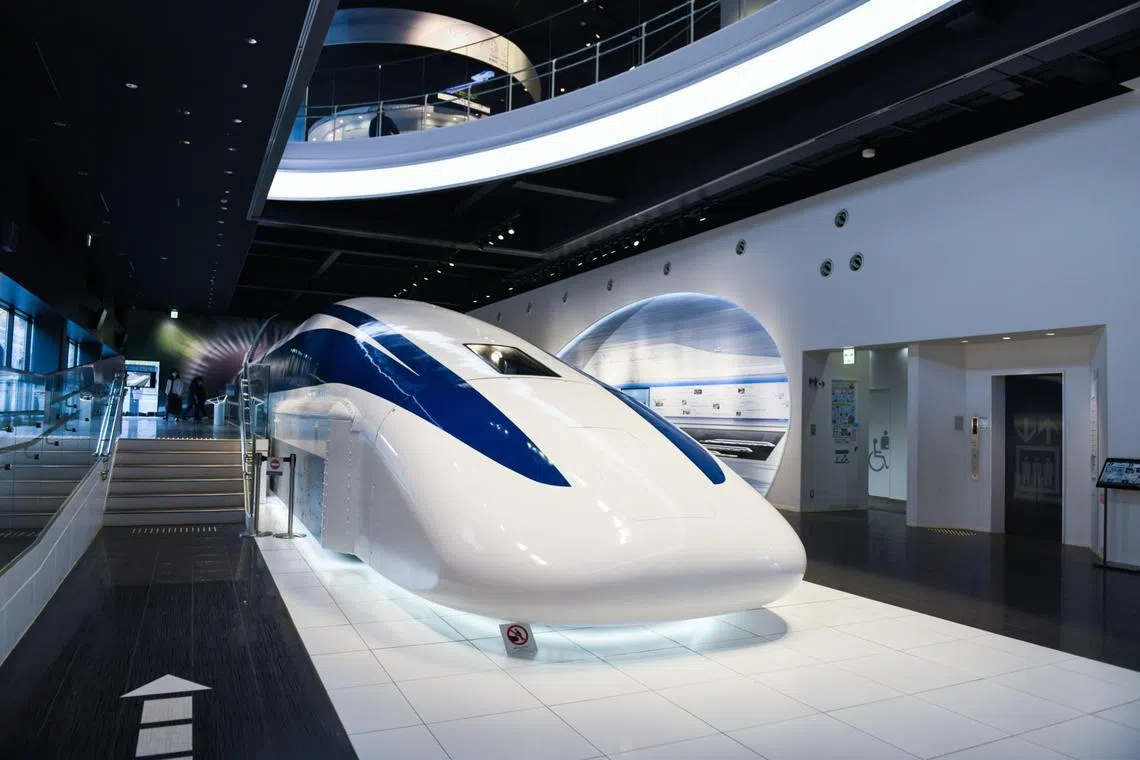For subscribers
News analysis
Japan revolutionised train travel, but delays plague its ambitious new high-speed rail projects
Sign up now: Get insights on Asia's fast-moving developments

It was announced on March 29 that the first phase of the maglev connecting Shinagawa in Tokyo to Nagoya is at least seven years behind schedule.
PHOTO: BLOOMBERG
TOKYO – Japan’s ambitious plans to debut the world’s fastest train service by 2027 have hit a snag, with the project at least seven years behind schedule.
On March 29, it was announced that the first phase of the maglev, or the Linear Chuo Shinkansen, connecting Shinagawa in Tokyo to Nagoya was drastically behind schedule. The service would cut travel time between the two places to 40 minutes, down from 1hr 26min via the bullet train.



